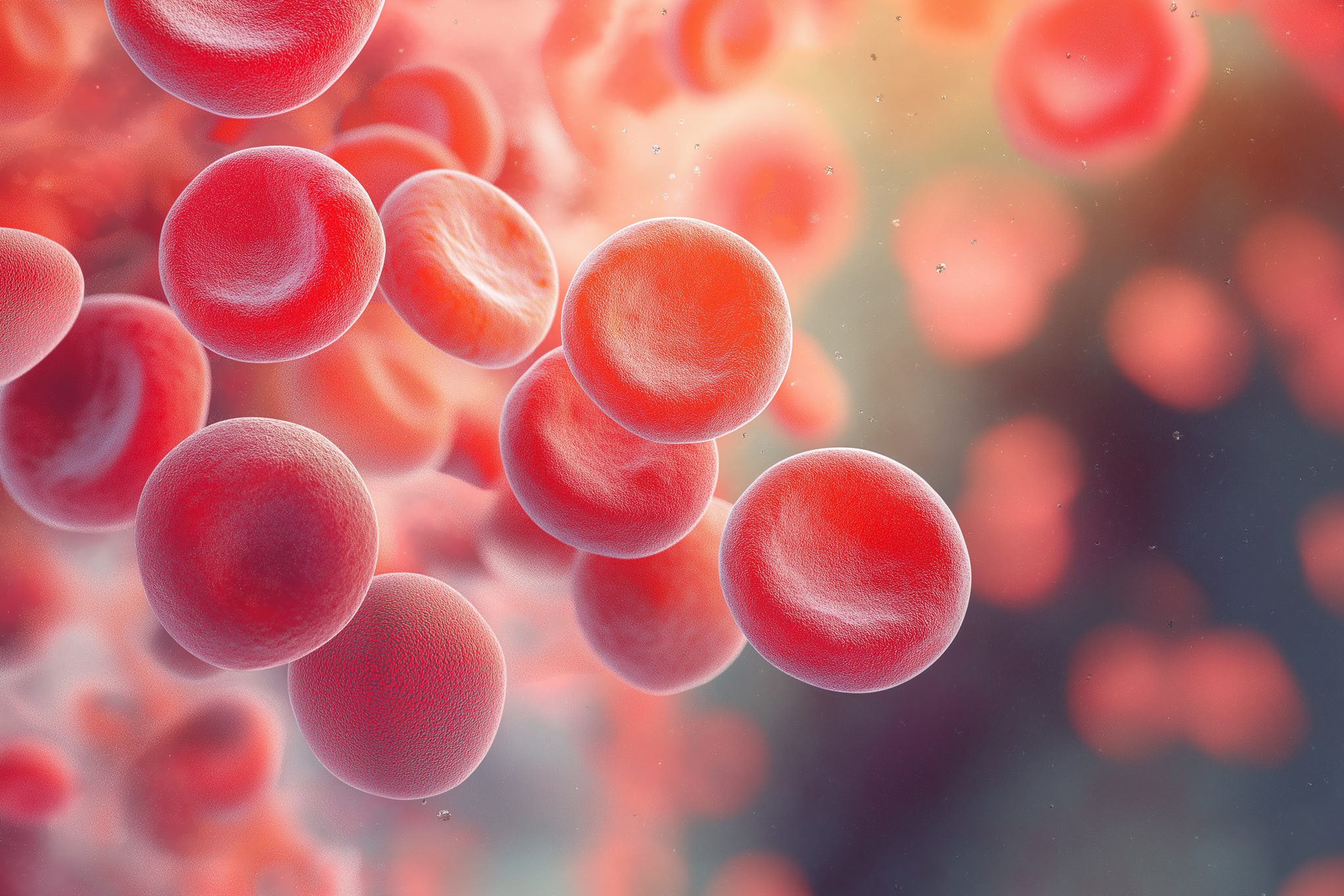
The Importance of Blood Oxygen Saturation for Quality Sleep
Discover the link between blood oxygen and sleep to learn about potential reasons why you aren't feeling rested after getting a full night's sleep.

Is there an important connection between blood oxygen and sleep that many of us are missing? Some emerging research suggests that blood oxygen levels during sleep could help to determine if we will wake up feeling rested and rejuvenated. The good news is that your blood oxygen level is something you can monitor while you're sleeping. Let's roll through the importance of blood oxygen saturation for quality sleep.
First Things First: What Is Blood Oxygen Saturation?
Also known as your blood oxygen level, your blood oxygen saturation is simply the amount of oxygen circulating in your blood. Oxygen is a true life force to the human body. Let's talk a little bit about the life cycle of oxygen as it moves through the body.
After entering the body through the nose or mouth when we breathe, oxygen travels through the lungs to enter the bloodstream. From the bloodstream, oxygen migrates to every cell in the body. In fact, cells rely on oxygen for the energy they need to perform. After using up oxygen, cells create carbon dioxide that is carried back to the lungs to be breathed out through the nose or mouth with each exhale you make.
Oxygen saturation levels are tightly regulated by the body. If blood oxygen levels dip too low, this leads to a condition called hypoxemia that can result in serious damage to the heart, brain, and other organs. A person with hypoxemia may be struggling with problems in their circulatory system or lungs. Common risk factors that can induce hypoxemia include acute respiratory distress syndrome (ARDS), asthma, chronic obstructive pulmonary disease (COPD), interstitial lung disease, pneumonia, a collapsed lung, or pulmonary fibrosis. Any underlying health condition or infection that induces chronic, sleep-disrupting coughing can also disrupt blood oxygen levels during sleep
Blood Oxygen and Sleep
Oxygen is just as important to our vital functions while we're sleeping as it is when we're awake. During sleep, the body undergoes intensive restoration processes that include cellular repair, hormone regulation, and memory repair. In many ways, the body actually works harder while we're asleep compared to our waking hours. If we don't have adequate oxygenation, we could be at risk for reduced quality of life.
During sleep, interruptions in breathing trigger blood oxygen levels to drop. In people who are otherwise healthy, sleep apnea poses the biggest risk for low blood oxygen saturation during sleep. There's even some research that low blood oxygen saturation from sleep apnea has genetic components.
How low is too low when it comes to blood oxygen levels during sleep?Most people need an oxygen saturation level of at least 89% to keep their cells healthy. Blood oxygen is considered low when levels drop below 95%. If blood oxygen dips to below 92%, medical intervention is often advised.
Generally, it takes prolonged or repeated lapses in breathing during sleep to cause oxygen levels to dip into the territory where cells and organs are impacted. This is where a person develops the aforementioned hypoxemia. Telltale signs of sleep-related hypoxemia can include:
- Breathlessness
- Inexplicable anxiety upon waking
- Heart palpitations
- Dizziness
- Lightheadedness
- Tinnitus (ringing in the ears)
- Bluish skin tone (cyanosis)
In extreme cases, sleep-related hypoxemia can cause more acute symptoms. This includes spikes in blood pressure that trigger dramatic vein swelling. For a person suffering with sleep-related hypoxemia that is caused by obstructive sleep apnea, there is also an increased stroke risk.
How Blood Oxygen Affects Sleep Quality
If you're waking up a dozen times a night to resume proper breathing, you aren't getting restful sleep. Even just one or two disturbances per night can dramatically cut down on your overall sleep quality. In fact, daytime fatigue is heavily associated with low blood oxygen saturation that's caused by sleep apnea.
The repeated awakenings associated with sleep apnea make getting adequate levels of restorative sleep impossible. Most people who wake up multiple times per night due to low blood oxygen levels aren't consciously aware that it's happening. This is why the symptoms of poor sleep can be so confusing. Common signs that your blood oxygen saturation levels are dipping in the night because of breathing disturbances include:
- Not feeling rested when you wake up in the morning even though you got a proper amount of sleep
- Recurring daytime drowsiness
- Irritability and moodiness
- Poor cognitive performance
- Behavioral issues
Poor sleep creates the immediate risk of vehicle and workplace accidents. It also poses serious long-term risks for your health. People who lack proper rest due to sleep apnea and accompanying low blood oxygen levels are at increased risk for:
- High blood pressure
- Heart and cardiovascular illnesses
- Type 2 diabetes
- Metabolic syndrome
- Liver problems
Unfortunately, research shows that people with obstructive sleep apnea that ultimately reduces blood oxygen levels have significantly higher risks of all-cause mortality compared to people with sleep durations lasting at least seven hours. There's even an increased risk of sudden death linked with this condition.
Blood Oxygen and Sleep Quality: What Does It Mean for the Average Person?
The bottom line is that good sleep shouldn't take your breath away. Low blood saturation is a sign that you're not actually sleeping through the night. It's common for people with sleep apnea to wake up and go back to sleep between 15 and 30 times every hour without remembering a thing about it the next morning! That works out to being awakened more than 200 times during an eight-hour sleep session. Of course, low blood oxygen levels could also be linked to an underlying health problem that needs to be addressed.
If you're simply not feeling as rested as you should based on the amount you're sleeping, it may be time to investigate your nightly blood oxygen levels. Did you know that Pillow offers the easiest way to track your blood oxygen levels while you sleep? With Pillow, you'll receive a detailed chart of your blood oxygen levels throughout the night to get data on your minimum and maximum values, it even provides easy-to-follow assessments of these values to help you see if your levels are within normal ranges. This information can be vital to your ability to make informed decisions about your sleep habits and health!

Written by
Emily Mendez
Emily Mendez is a former therapist and mental health author. She is one of the leading voices in mental health. Emily's writing has appeared in eCounseling, SonderMind, and more. Emily is frequently interviewed by Healthline, Fatherly, INSIDER, Family Circle, and other national media for her advice and expert opinion on the latest mental health topics.
Download Pillow
Get help
Press & News
Legal
Connect
X (Twitter)
Company
Copyright © Neybox Digital Ltd.



